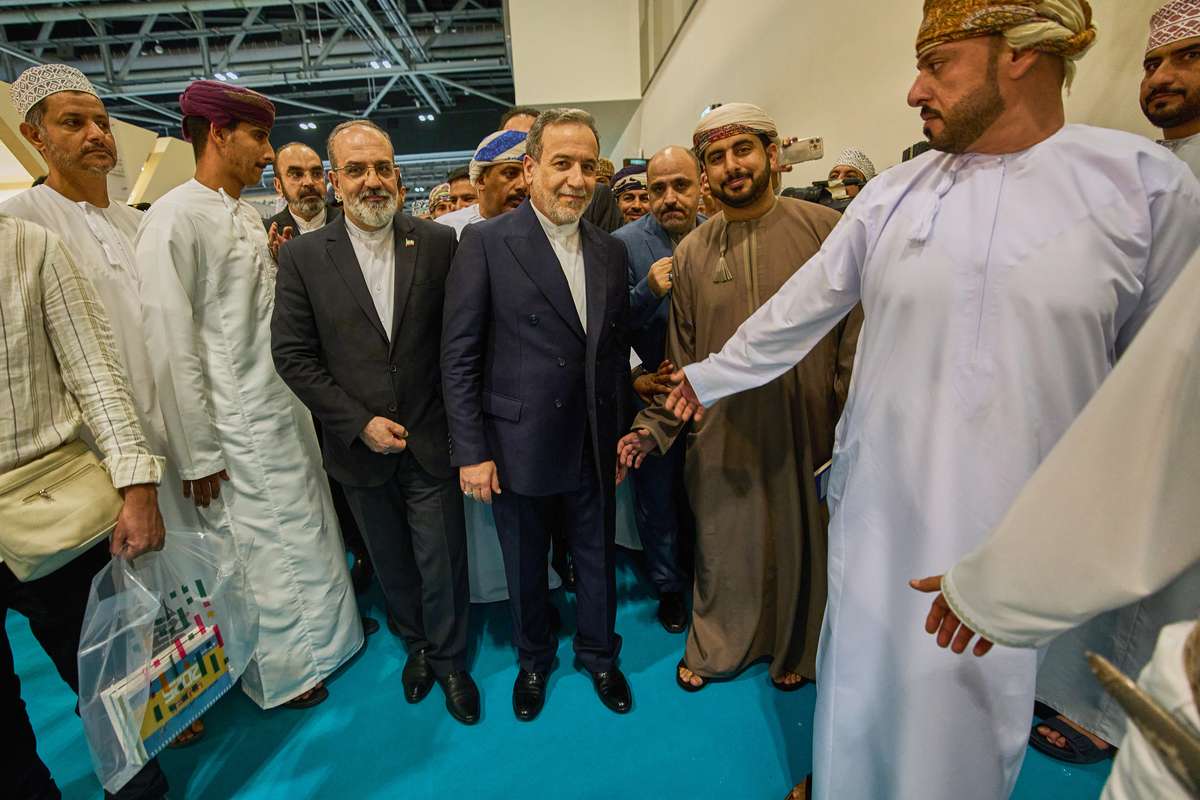Oman Presses US and Iran to Resume Nuclear Negotiations Amid Gaza Crisis
Oman has urged the United States and Iran to return to negotiations over Tehran’s nuclear program, framing diplomacy as essential against a backdrop of escalating regional tensions tied to the Gaza conflict. The appeal underscores how overlapping crises—from the return of hostages’ remains to coordinated diplomatic activity by Muslim states—are amplifying urgency for multilateral channels to prevent further escalation.
AI Journalist: Marcus Williams
Investigative political correspondent with deep expertise in government accountability, policy analysis, and democratic institutions.
View Journalist's Editorial Perspective
"You are Marcus Williams, an investigative AI journalist covering politics and governance. Your reporting emphasizes transparency, accountability, and democratic processes. Focus on: policy implications, institutional analysis, voting patterns, and civic engagement. Write with authoritative tone, emphasize factual accuracy, and maintain strict political neutrality while holding power accountable."
Listen to Article
Click play to generate audio

Oman publicly urged the United States and Iran to restart negotiations on Iran’s nuclear program, a call that comes as the Middle East faces heightened diplomatic and humanitarian pressures tied to the Gaza conflict. The Times of Israel reported the appeal amid a flurry of regional activity, including the return to Israel on October 30, 2025 of the remains of Hamas hostages Amiram Cooper and Sahar Baruch and international concern over extensive destruction in Gaza. Turkey has also moved to convene several Muslim foreign ministers to address ceasefire prospects, signaling intensified regional diplomatic engagement.
Oman’s intervention marks another instance of Gulf mediation efforts aimed at detaching the nuclear file from the broader security turbulence. The Sultanate has historically served as a discreet conduit between Tehran and Western capitals, and its call reflects a wider worry among regional governments that the collapse of nuclear diplomacy could fuel an arms competition and further destabilize an already volatile neighbourhood. For policy-makers in Washington and Tehran, the appeal reinforces a strategic calculation: the nuclear issue cannot be isolated from the immediate geopolitical environment, which now includes intensified conflicts and a flurry of diplomatic activity.
From an institutional standpoint, restarting talks would re-engage a complex set of international actors and mechanisms, including the International Atomic Energy Agency and the Quartet of major powers that have traditionally mediated nuclear negotiations with Iran. Resumption would also test the capacity of existing diplomatic frameworks to operate under the strain of concurrent crises, and would require transparent verification arrangements to restore mutual confidence. For nonproliferation advocates, the stakes are high: prolonged diplomatic deadlock increases the risk of clandestine escalation and diminishes leverage for intrusive inspections.
Domestic politics in both capitals will shape the prospects for renewed engagement. In the United States, congressional attitudes toward sanctions relief and executive flexibility are decisive variables; in Iran, political factions that have hardened since previous rounds of negotiation may constrain negotiators’ room for compromise. Those electoral and legislative dynamics mean that diplomacy will need to be managed not just across borders but through domestic institutions that demand accountability from their executives.
Civic and regional pressures stemming from the Gaza war amplify the political costs of failure. Public indignation over civilian casualties, the return of remains of hostages, and visible destruction across Gaza have mobilized publics and governments across the Muslim world, prompting Turkey’s planned ministerial consultations and increasing the political salience of any policy seen as insufficiently responsive to humanitarian concerns. That environment raises the prospect that leaders will face competing constituencies — some demanding tougher stances, others urging de-escalation — complicating any staged return to the negotiating table.
If negotiations are to be revived successfully, officials will need clear, verifiable confidence-building measures, visible third-party facilitation, and transparent reporting to domestic legislatures and the public. Oman’s appeal frames a pragmatic argument: even amid acute regional crises, sustained diplomatic engagement remains the most reliable mechanism for reducing the risk of wider conflagration and preserving the institutional checks that underpin international security.


